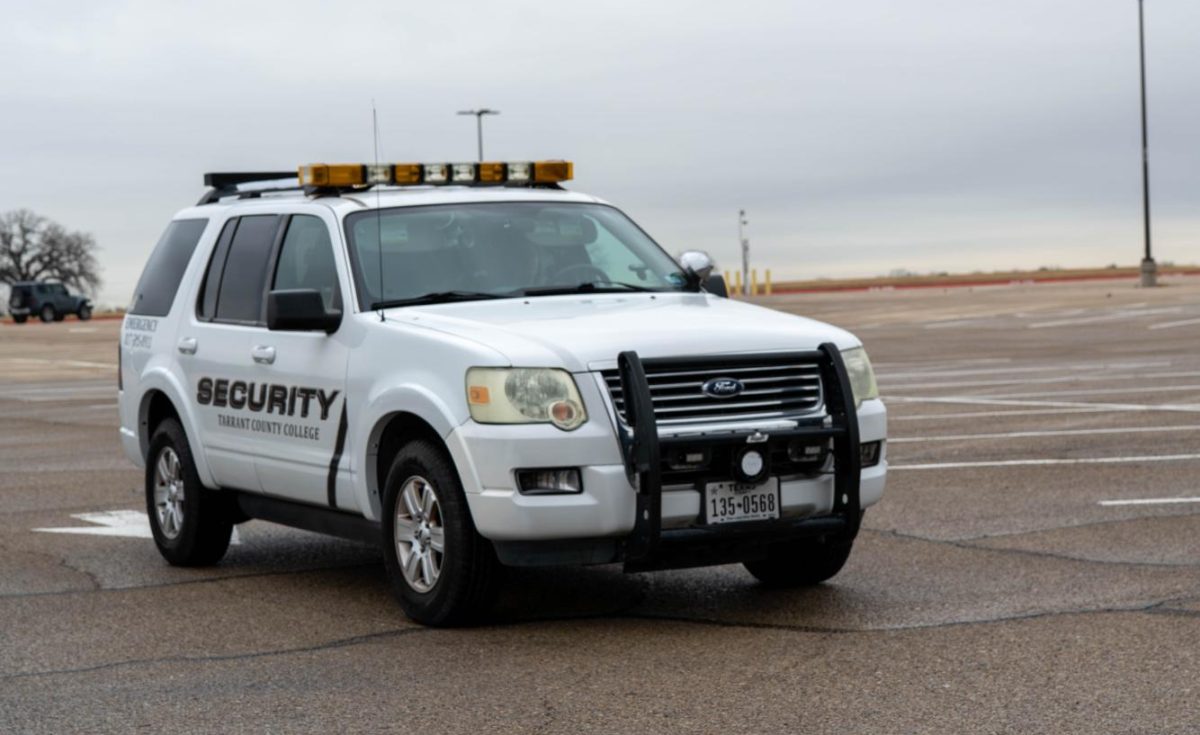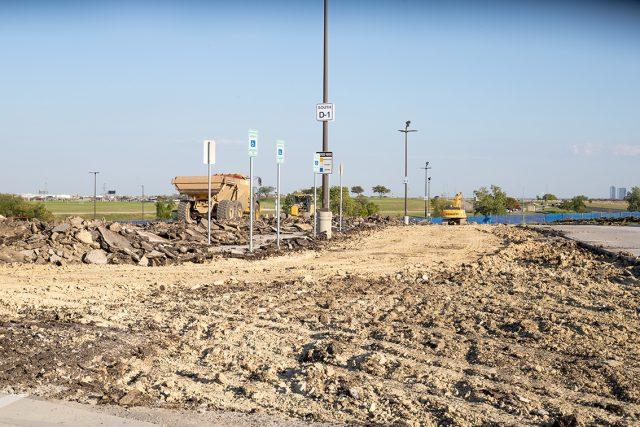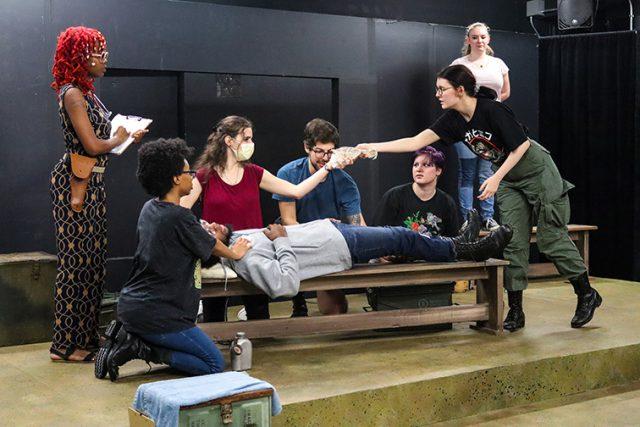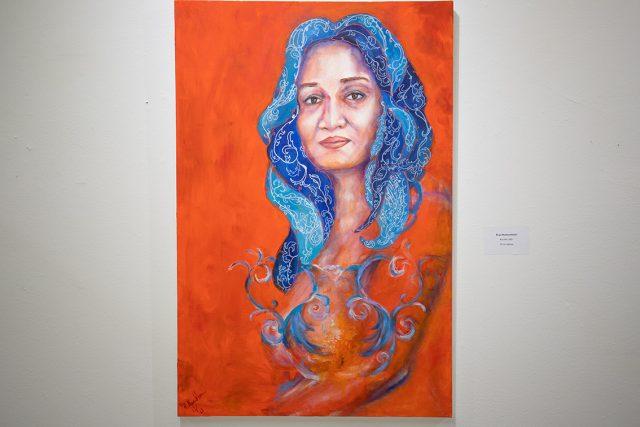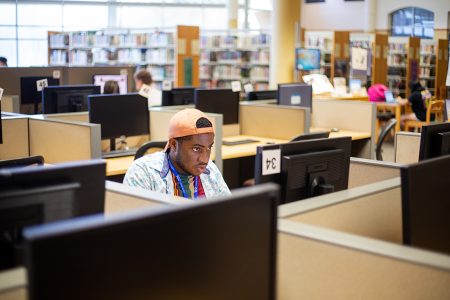
students at the SE Campus library.
Joel Solis/The Collegian
XAVIER BOATNER
campus editor
xavier.boatner@my.tccd.edu
TCC students have spoken about the issues they’ve had when trying to connect to Wi-Fi around campus.
In recent years, TCC has placed a great emphasis on virtual resources such as virtual assessments, textbooks and classes due to the COVID-19 pandemic. The integration of digital tools into the curriculum has changed the way some instructors distribute materials and the way some students receive those materials. A common issue that students have come across, however, is the Wi-Fi instability.
“The Wi-Fi is not good. Whenever I want to connect to the Wi-Fi, I need to unlock it with my email to accept, and it’s not secure,” NE student Ricardo Aleman said.
Aleman emphasized his frustrations with the Wi-Fi and addressed further concerns.
“It’s how a lot of hackers get into people’s PCs and phones,” Aleman said
The Wi-Fi issues caused concern for Aleman. He said the issues have persisted for some time and have been acting up since the start of the semester.
“When I arrive to the campus, I have to connect to the Wi-Fi, and when I connect with my email and password it stays connected, but then disconnects it,” NE student Emily Solis said.
She said it was a hassle for students to repeatedly use their email to connect.
“I have to switch my Wi-Fi going from building to building,” said NE student Ross Sanders. “That’s ‘cause I use the public Wi-Fi.”
It isn’t just students that have had problems with the Wi-Fi. This issue impacts various people on campus, including instructors. They need to use the WiFi networks to be able to teach their class and access materials for their students.
“I have not experienced too many issues on campus. One major one is Wi-Fi-related, either with students or the actual classroom computers themselves,” NE English adjunct instructor Becca Goodwin said.
She said the only major issue she experiences regularly while in the classroom is Wi-Fi related.
“There is not a problem within classrooms that have computer labs, but when a student needs to log in on their own device, there is an occasional issue with logging in or accessing Wi-Fi at all,” Goodwin said.
These Wi-Fi issues haven’t just affected Goodwin, though. NE history associate professor Karen Wisely also voiced her concerns with the Wi-Fi issues and its impact on students.
“I think that we professors have become almost entirely dependent on technology in our teaching,” Wisely said. “It’s understandable, but I think that creates issues when the technology doesn’t work. We need to be a bit more flexible. And, mind you, I am speaking from the perspective of a history professor. I don’t know if the hard sciences are going to be able to adjust as easily.”
She said she believes the technology in classrooms needs an upgrade to keep the instructors on the same level as far as accessibility to resources is concerned. She also said that providing instructors with troubleshooting guides to help them better navigate their stations is needed.
“Obviously, technical difficulties negatively impact the students,” Wisely said. “I know that there are teachers who, when the tech fails, will just end the class early. That may sound like a great solution, but it will hurt in the long run because your class will be behind.”


























